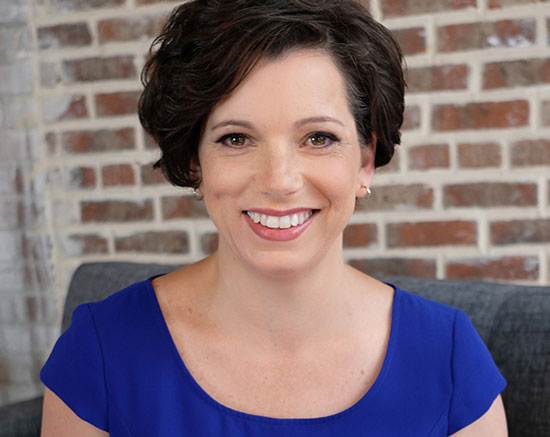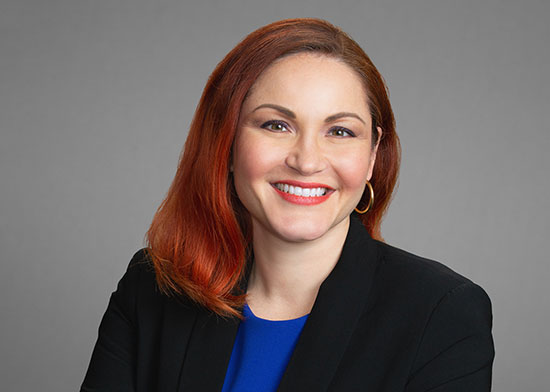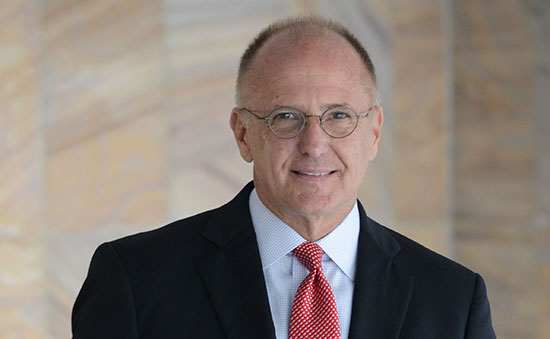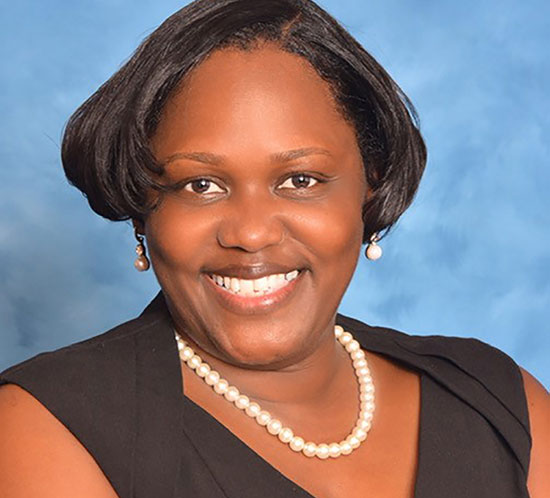
A profession constantly responding to changes in the economy, technology, client expectations, recruitment and retention, marketing and business development, and other aspects of practice has added sudden shifts prompted by COVID-19.
After readjusting on the fly to the pandemic, attorneys and firms are settling into a “new normal” for now and are trying to figure out what will revert back to the “old normal,” and in what ways their businesses and professional lives have forever changed. Whatever normal we’re going back to isn’t the one we left behind, say the experts interviewed.
According to the 2020 Legal Trends survey report from Clio, a cloud-based legal technology company, attorneys believe they have found their footing overall. More than two-thirds (68 percent) said they are more prepared to handle the impact of future waves of the coronavirus.
George Psiharis, chief operating officer of Clio, headquartered in British Columbia, says the economic impacts of COVID were severe and across the board, although firms that deployed cloud-based and client-centered technology were performing significantly better than the rest – as much as 40 percent more revenue per lawyer in 2020 vis-à-vis their peers.
“Some firms were more adaptable and ready,” he says. “The pandemic triggered an evolutionary moment. It taught us how important it is to be adaptable, or live in what is referred to as a growth mindset, with the ability to pivot and change. … I see a lot of lawyers procrastinate in making changes and adopting technology in ways that hold them back.”
Traditionally, law firms and lawyers have had to be present in physical space to succeed, although they’ve been migrating online in recent years, says Nate Bogdanovich, principal with PS Companies, a legal and corporate staffing consultancy based in West Allis and Minneapolis.
“You’ve been seeing it for sure with the younger crowd, this whole idea of remote working,” he says. “The pandemic has forced the hand of people to all be on the same page and be more creative with [the concept that] we don’t have to be present in the office. We can do good work in a remote capacity.”
As the pandemic wanes, Bogdanovich has heard mixed conversations about whether firms or attorneys will return to the office. “Some have found it very difficult to work at home, especially if you’re a dual-working family with children at home, especially with schools shut down,” he says. “In the middle of calls, you’re helping kids log on to Zoom class. … I’ve heard that some have really enjoyed the working-at-home time given the demands of law practice, they’re at the office for long hours, and it’s a grind. Some have been able to spend more time with family, in between still working and producing at a high level.” In the future, some may opt for a hybrid schedule, say three days a week in the office, he adds.
Stephanie Everett, president of The Lawyerist, an Atlanta-based consultancy that focuses on solo and small law practices, says she definitely notices lawyers embracing the notion that having offices and doing in-person work isn’t as necessary as they previously thought.
“I see a ton of people giving up their leases for a more permanent remote-work situation, freeing up that cash they might have been spending paying rent and investing it in other parts of their law firms,” she says. “Along with that, obviously, is a final embrace or push toward technology tools that some lawyers have been using for quite a while. … The pandemic has forced firms to realize that there are benefits to being paperless; there are benefits to having computer systems connected so you can work from anywhere.”
The idea of being virtual with clients seemed foreign to a lot of attorneys pre-COVID, Everett says. “Why would we do that? I need to be in person,” she says, summing up the reaction. “That’s not the case anymore. Lawyers are also starting to embrace some cool tools you can use within virtual conferences. … The key is learning how we can replicate that real-world experience in a virtual world and not lose the experience we want to create for clients just because we’re remote. So we kind of get the best of both worlds.”

The pandemic triggered an evolutionary moment. It taught us how important it is to be adaptable, or live in what is referred to as a growth mindset, with the ability to pivot and change. … I see a lot of lawyers procrastinate in making changes and adopting technology in ways that hold them back. – George Psiharis, chief operating officer, Clio, British Columbia
Hybrid Work Arrangements: The Norm
Monique Mahler, human resources manager at BakerHostetler in Houston and Dallas, states flatly that the main takeaway of the past year has been that attorneys and support staff can, in fact, work from home. Smaller and midsized firms might have struggled to make the transition, she says, but larger firms like hers had resources in place.
“Any organization would be remiss to not entertain some thought of how we take the lessons and pivot into a newly revised imagining of the workforce,” she says. “I’m not suggesting that law firm brick-and-mortar locations are going to go away. But particularly with millennials, this telecommuting option is an added benefit to them. Most of my research suggests that people do want the option to do both – a hybrid solution, three days in and two out.”
Mahler predicts such a schedule will become the norm even after COVID-19 winds down. “Not only does it offer increased productivity benefits, but I’m not having to put makeup on and fix my hair,” she says. “They’re getting at least two to three more hours of work out of me. I also have the flexibility to meet the exterminator or go to the doctor.”
Millennials have been pushing hardest for this, in part because they’re the generation with young children, but it benefits all age groups – and law firms, Mahler says. “For employers, it’s a selection of candidates from a much wider pool,” she says. “I could find somebody who lives two hours away to work remotely, and they’re a great candidate, with little overhead cost. There’s a boost in employee productivity.”
Telecommuting arrangements do require careful planning, patience, and tweaks, Mahler says, to ensure that everyone remains engaged. “You want to make sure they know they’re part of the team,” she says. “You need to have weekly check-in calls with staff and make sure that they have the help they need and that they’re getting their work done.”
John Remsen Jr., president and CEO of TheRemsenGroup, an Atlanta-based business development firm, says most firms have adjusted “remarkably well” and could “use this whole mess as an opportunity to pivot” to a more flexible array of options going forward – yet one in eight managing partners in a recent survey his firm conducted say they’re “going back to business as usual when this blows over.” “Really? We challenge them to look forward,” he says.
For the remainder of the pandemic, Remsen urges managing partners to communicate well and show plenty of empathy, particularly to support staff who might not have a spare bedroom to use as a remote office or the technology training to easily make the shift. “Often they’re in a smaller environment, their kids aren’t in school, and we take for granted that they have internet access,” he says. “Some managing partners have been shocked.”
The federal Paycheck Protection Program (PPP) has helped many firms (and their clients) stay afloat during COVID-19, although those that have emerged better than expected probably should take a look at repaying those loans, Remsen says. “You don’t want to get caught in the court of public opinion,” he says. “Do you want to be the big Eau Claire firm that gets written up on the first page of the business section?”
Hot Tips – and ‘Not’ Tips – for 2021
Legal professionals and consultants interviewed for this article shared one thing that lawyers and law firms should do – and shouldn’t – in 2021. Here’s what they had to say:
Do This:
- George Psiharis, Clio: Transition to the cloud, posthaste. “It’s not too late,” he says. “You haven’t missed the boat. The majority of law firms haven’t adopted it. Making this technology change isn’t better for the client, at the lawyer’s expense. It’s better for both. … Whatever ‘normal’ we’re going back to isn’t the one we left behind.”
- Nate Bogdanovich, PS Companies: Continue to be innovative in both operating firms and providing services to corporations and other clients. “We’ve made some really good headway in innovation with remote working, with different ways of retaining talent and different expectations or demands for your own attorneys,” he says. “You set a baseline, and now we can continue to build for the future.”
- Stephanie Everett, The Lawyerist: Acknowledge your struggles and feeling of burnout, however difficult that might be to admit to people. “We’re doing the best we can to serve our clients, keep our law firms running, and keep our families safe,” she says. “It’s okay to pause and acknowledge that this has been really tough, and give ourselves a little grace – to take care of ourselves and check in with our team members, too.”
- John Remsen, Jr., TheRemsenGroup: Stop printing. “Let’s finally go ahead and make the jump into paperless,” he says. “We’ve been talking about this forever and a day. We still have some lawyers who like paper. Folks have learned that we can adjust. That’s a no-brainer.”
- Alfreda Coward, Coward & Coward: Remain current on the latest in technology. “That’s what equals us out – as a solo, I can compete with the large firm if I have the technology access,” she says.
- Monique Mahler, BakerHostetler: Communicate.
Not This:
- Psiharis: Don’t concern yourself with having high-grade office space to impress clients, at least in most practice areas. “Not everyone is going to remote, but there are cost savings that folks will choose to pass along to their clients,” he says.
- Coward: Ditto. “Don’t continue to spend outrageous amounts of money on law offices that we realized we could live without if necessary.”
- Remsen: Don’t allow lawyers to coast and not meet their billable hour expectations. “It becomes a chronic situation,” he says. “Senior lawyers, they’ve been here a long time, we like them, we’re too nice to take a hard-nosed approach. I don’t think we can afford to do that anymore.” A corollary to that: retaining support staff whom technology has made unnecessary, especially those who haven’t kept up with technology. “Are we running a business or a country club?” he asks.
- Mahler: Micromanage.
-550.jpg)
Trusts and estates has been “wildly successful, whether you’re an AmLaw 200 or a T&E boutique. Given the election [results], a lot of people are concerned about what’s going to happen with taxes.” Intellectual property has remained rock solid, and M&A has begun to pick up again after a drop-off. – Nate Bogdanovich, principal, PS Companies, West Allis and Minneapolis (Photo: Wisconsin Law Journal / Kevin Harnack)
Client Expectations: Reality and Perception
The Clio Legal Trends report provides a snapshot of the current state of client expectations in the wake of the pandemic. Clients say that technology is more important to them than it has been (58 percent) and that they expect their lawyers to use cloud-based technology (53 percent). At least half of the clients surveyed say that they prefer to share documents electronically (69 percent); videoconferencing to a phone call (56 percent); to videoconference throughout their matter (50 percent); and to pay their bills electronically (65 percent).
On the other side of the Zoom call, attorneys express a willingness to meet their clients’ technology needs. More than half say they are meeting virtually with clients (83 percent), rely on the cloud to store data (79 percent), allow documents to be securely shared and signed (62 percent), allow for electronic payment (73 percent), and believe technology has helped their firms deliver better client experiences (68 percent).
But there is a disconnect between reality and perception. Only 29 percent of consumers surveyed believe lawyers can access firm information online, and that lawyers are able to securely share documents or accept e-signatures. Even fewer (26 percent) believe most lawyers are meeting virtually with clients, and less than half believe most lawyers accept electronic payment (40 percent) or even use computer software in general (42 percent). More than one-quarter (26 percent) believe that lawyers who are unprepared to meet virtually with their clients are not good lawyers.
The pandemic has prompted a decade’s worth of technological advances to play out in months, both in firms and in court systems, Psiharis says, adding that Clio was struck by how similarly clients and lawyers lined up, even as expectations differed. “This opportunity to democratize legal practice isn’t only about being more approachable but also doing things to meet clients’ needs,” he says. “The transition to working remotely has created experiences that clients are going to adapt to and really expect.”
Clients have been experiencing asynchronous connections with firms for the first time in many cases, and Psiharis sees expectations developing around speed of response to their inquiries and clarity around how the client journey will proceed. “Convenience and rapid response is an important piece for firms to lean in and meet client expectations,” he says. “And there’s a difference between [providing] automated outreach, and telling clients you’re going to be automating outreach and how it’s going to work.”
Psiharis is curious to see how many firms and clients continue with videoconferencing once the pandemic ends. “There are two key points in the client life cycle where people want to meet in person and want human empathy,” he says. “When they’re first explaining the details and facts of the situation – here’s what happened, here’s what I need help with. And secondly, when they’re learning about the legal outcomes. … Getting the good news or bad news from a human, and having empathy and feeling cared for in a stressful moment, seems really important.”

Attorneys might need to think harder about alternative fee structures. We talk about unbundling legal services. It requires us getting out of our own heads and thinking, “This is the way we’ve always done it, but a client might not be able, in the middle of a global pandemic and recession, to pay for what we’ve always done.” – Stephanie Everett, president, The Lawyerist, Atlantalis
Client Expectations: Don’t Ignore What’s Happening
Client expectations are shifting vis-à-vis how clients interact with other types of businesses and services, and lawyers and firms would do well to take note, Everett says. “If I can sit on my iPad and have groceries delivered to my front door, suddenly the idea of having to drive downtown, and pay for parking, and walk across the street, and go up an elevator to somebody’s office, and take time out of my day – that now becomes a three-hour-plus venture to meet with my attorneys and get an update on my case,” she says. “That seems really unreasonable.”
Given the reduction in both business and personal budgets, Everett says attorneys might need to think harder about alternative fee structures. “Is that something I can provide to them at a price point that would work for them? Or change what I offer and maybe not offer it in the same way?” she says. “We talk about unbundling legal services. It requires us getting out of our own head and thinking, ‘This is the way we’ve always done it, but a client might not be able, in the middle of a global pandemic and recession, to pay for what we’ve always done.’”
Clients want accessibility and responsiveness as they always have, Remsen says, but today that means embracing technology, creating client portals, and showing empathy toward clients and their businesses, some of which might have taken a hit. “Do you want to be aggressive in getting your year-end bills paid?” he asks. “Take it client by client. Some clients have the ability to pay, so don’t let them use COVID as an excuse. Other clients are probably strapped and need a break.”
Potential and even current clients will continue to investigate alternative legal service providers, which aren’t going anywhere, especially with state-level reforms to allow paraprofessionals to handle certain types of legal work, in addition to online providers, Remsen says. “You can’t hold back the tide, folks,” he says. “You’ve got to live with it and float, or it’s going to sink you. …. There are dozens if not hundreds of these well-funded entities that are looking to take scraps off your plate.”
Yet the percentage of firms that offer alternative fee arrangements remains “stuck in the high teens,” according to Remsen’s research. “There’s a lot of talk, talk, talk, talk, talk,” he says. “But I still hear to this day, ‘The lion’s share is by the billable hour, and that’s how our clients want it.’ We’ve tried to encourage firms to think about flat fees, contingencies, other value-based billing.”
Firms in Wisconsin are not immune to such trends. “Firms say, ‘John, that’s big-city stuff. We’re not feeling all this pressure from our clients that you talk about,’” he says. “They’re not feeling it yet – but it’s coming. There might be a little lag. … You need to have your antennae up to what’s going on in other parts of the country that may be drifting your direction.”
Remsen talks to firms that have been the dominant firm in a city or town for decades and represent banks, hospital systems, developers, and other moneyed interests. “They grow fat, happy, and complacent,” he says. “Then the firm from the next big city sets up shop. Where are firms coming into Wisconsin? Is Dentons? … Is there going to be a Dentons Quarles & Brady, or a Dentons insert-firm-name-here coming into Wisconsin?”

For employers, it’s a selection of candidates from a much wider pool. I could find somebody who lives two hours away to work remotely, and they’re a great candidate, with little overhead cost. There’s a boost in employee productivity. – Monique Mahler, human resources manager, BakerHostetler, Houston and Dallas
Retaining Talent: Erasing the Boundaries
Psiharis believes midsized and large firms that adopt cloud-based technologies and offer remote working options will have an easier time attracting and retaining talent. “It’s no longer negotiable,” he says. “If you go from having the flexibility to work from home, or relocate out of an urban center, you’re not likely to be willing to go back. That would have played out over years. It’s happening faster.”
Cloud technology also makes it easier for attorneys to set up their own practice, much more simply and with less risk than in the past. “If you don’t have to invest in commercial space and a lease, you can start a solo practice, or a boutique with those different locations,” Psiharis says. “With folks looking to take advantage of work-life balances, I definitely see firms in those categories growing in a big way.”
Bogdanovich sees similar trends both nationally and in Wisconsin. Allowing remote work “opens you up to draw talent from competitive markets,” he says. “If you’re limited to the places where you have offices, there’s geography you’re never going to tap into. In all the conversations we’ve had with managing partners, they’re saying, ‘We’re not limited anymore by geography, in terms of where we have physical space.’”
Firms also have expanded geographically through mergers and acquisitions, which also can add practice areas, a trend that suspended somewhat in the earlier part of the pandemic but has picked up in recent months, Bogdanovich says. “I’ve seen that throughout the geography of the state – from Kenosha up through the Fox Valley, and even in the northern and western parts of the state,” he says. Attorneys tell him, “If I can take better care of my clients, make more money, and broaden the tool [of talent] I’m dipping into, I’m totally open to having that conversation.”
The pandemic’s reminder that firms can’t afford to lose good talent has prompted some to create alternative career paths, Bogdanovich says. “Normally, I go in-house because I want to work for one client, and I don’t want to grind out billable hours anymore,” he says. “But firms with flexibility are creating different tracks to meet those needs.” They’re also retaining people who relocate geographically – say, due to a spouse’s job changing – by letting them work remotely. “That’s more prevalent than ever,” he says. “It’s a shift to what the talent desires.”
Firms seemed a bit nervous to hire and grow in the early stages of the pandemic, but Everett sees them becoming more comfortable, in part thanks to help from the from the PPP. “What do I need now? What will I need six months or a year from now?” she suggests that firms ask themselves. “You have to be really clear and think about the firm’s vision and values, and make sure you’re aligning your hiring decisions around that.”
Mahler advises those looking for work to keep an open line of communication, knowing that many firms aren’t hiring right now but that mergers are going forward, and groups of partners are delinking and starting their own boutique firms. “Knowing the balance between checking in and reminding people that you’re there, versus being overzealous,” is helpful for job seekers, she says. “As far as retaining talent, what people appreciate most right now is communication, even if there’s not much to update them on, just keeping them apprised.”
Offering more flexible commuting options also will help reduce turnover, Mahler adds. “It saves money, it keeps institutional knowledge, and it helps with succession planning,” she says.
Retaining newer lawyers has become challenging in a year when firms haven’t even met first-year associates in person, Remsen says. “It’s challenging, but they’re finding ways to continue mentoring, training, and developing young people,” he says. And while lateral movement and mergers have slowed during the past year, “When we come through this, that activity is going to really pick up,” he adds. “We’re going to see departures and defections among young lawyers who aren’t seeing the future because the firm has not responded well.”

Potential and even current clients will continue to investigate alternative legal service providers. You can’t hold back the tide, folks. You’ve got to live with it and float, or it’s going to sink you. There are dozens if not hundreds of these well-funded entities that are looking to take scraps off your plate. – John Remsen Jr., president and CEO, TheRemsenGroup, Atlanta
Marketing & Business Development: Get Creative
Digital advertising and business development have become indispensable, Psiharis believes, with lawyers and clients alike working remotely. “It’s as important as ever to be discoverable,” he says. “One of the patterns we’ve observed is that as folks have less and less disposable income or ability to pay, they’re less likely to pick up the phone.”
Firms and attorneys that previously relied on in-person, one-on-one networking as their primary marketing vehicle have struggled, Everett says. Such attorneys “have had to be more creative in how you create top-of-mind awareness with your networks and referral groups, and weighing that against the virtual meeting burnout that everyone is feeling.”
Such creativity can include, for example, inviting a prospective client who lives or works nearby to go on a masked, distanced walk around the neighborhood, Everett says. “You have a meaningful conversation, off the video, and you’re getting out and getting exercise,” she says. “It’s a different way to connect with someone. … There are opportunities to diversify, be strategic, and think about online and offline marketing.”
Firms that Remsen has spoken with are beefing up spending on social media and online advertising and pulling back from season tickets to ballgames that have limited, if any, in-person attendance. “We can’t wine and dine our clients like we once did,” he says. “The traditional marketing business development that many of us deployed is going to change.”
Emerging Practice Areas
Clio has found that areas of law like traffic, criminal defense, and personal injury saw the biggest declines in caseloads because “if people stay home, they’re not doing a lot of the things that create those cases,” Psiharis says. But areas like commercial and insurance have been less affected because “those needs continued,” he says.
 Ed Finkel is an Evanston-based
freelance writer.
Ed Finkel is an Evanston-based
freelance writer.
PS Companies has noticed that trusts and estates has been “wildly successful, whether you’re an AmLaw 200 or a T&E boutique,” Bogdanovich says. “Given the election [results], a lot of people are concerned about what’s going to happen with taxes.” Intellectual property has remained rock solid, he says, and M&A has begun to pick up again after a drop-off. “It seems that there’s more confidence going forward,” he says.
Remsen has seen spikes in family law, with spouses cooped up together, as well as in estate planning. With COVID-19, “Maybe there’s a recognition that we’re all mortal,” he says, adding that tax law changes potentially coming online also could impact that area. “And like anything, what industries are growing? Distribution and logistics; and cannabis is playing jurisdiction by jurisdiction as more and more states legalize.”
Everett recalls predictions early in the pandemic that bankruptcy law was going to explode, which hasn’t happened, perhaps due to the stimulus money. “People still need help, and lawyers are helpers,” she says. “It’s up to us to … get into their shoes and think about what kind of help they might need in spite of the pandemic, or in light of the pandemic. The help they need might have shifted, or the amount of money they can pay us might have shifted.”
The State of Smaller Law Firms

Quite frankly, paying attorney fees is usually low on the list when you have to feed your family. Our economics declined because our clients were more likely affected by COVID, and in turn, we were, too.
– Alfreda Coward, chair, ABA Solo, Small Firm and General Practice Division
How have smaller law firms fared during the COVID-19 pandemic and consequent recession? A survey of 400 firms with fewer than 30 attorneys conducted in March and April 2020 by Thomson Reuters Institute provides some clues.
As with past surveys, acquiring new client business (cited by 26 percent) is the most frequently cited issue, followed by spending too much time on administration and not enough on law practice (17 percent). However, less than one-third of firms have actually implemented a plan to handle these problems – and that leaves an opportunity for the first ready to make the first move.
“While it is undoubtedly true that some small law firms have already taken a leading role to innovate their service delivery models, there remains ample fertile ground for other firms to implement similar changes, whether by improving business development acumen, creating optimal internal efficiencies for managing their law firms, or adopting technology to streamline their practice,” the report says.
From the vantage point of Alfreda Coward, chair of the ABA’s Solo, Small Firm and General Practice Division (GPSolo), smaller firms have struggled more during the pandemic because their clients – typically mom-and-pop businesses and families – have struggled. “Quite frankly, paying attorney fees is usually low on the list when you have to feed your family,” she says. “Our economics declined because our clients were more likely affected by COVID, and in turn, we were, too.”
Small-firm clients often require a great deal of handholding, which can’t be done literally or figuratively as much during the pandemic, Coward says. “We’ve had to take on new models,” she says. “We’re interviewing our clients on Zoom and other virtual platforms. … They want the time with a lawyer, but they’ve lowered their expectations a little bit based on COVID.” That doesn’t mean they’ve lowered expectations about quality of work, however, she adds.
While the pandemic has been a difficult time to find employment with larger firms, Coward advises those starting out to “think outside the box” and diversify their practices in areas like trusts and estates, evictions and foreclosures, and family law, all of which are growing. And she advises new lawyers to run to their strengths on social media, which is more relevant than ever as a marketing vehicle.
The ABA’s GPSolo Division is battling do-it-yourself legal services, which it sees as primary competitors for its member firms, Coward says. “We know that across the country there’s a movement to allow more of them,” she says.
Where to Turn for Help?
Turn to the State Bar of Wisconsin’s Solo Small Firm & General Practice Section to enhance the quality of practice for small-firm lawyers and those with interests beyond the bounds of a single professional practice area.
